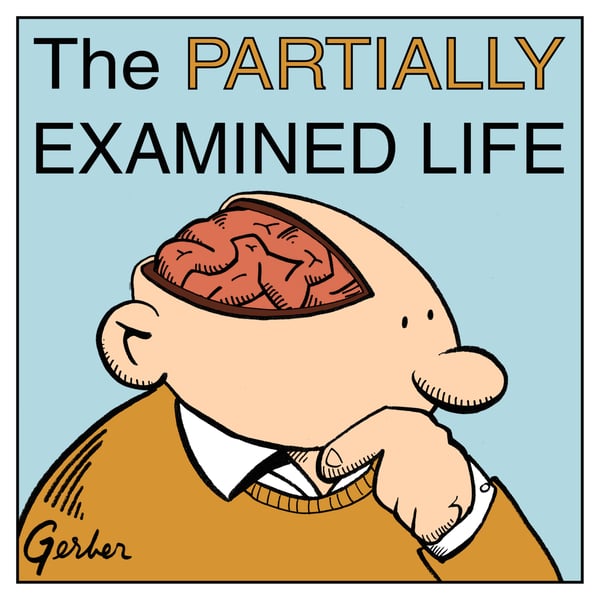Ep. 221: Functionalist Theories of Mind (Putnam, Armstrong) (Part Two)
The Partially Examined Life Philosophy Podcast
Mark Linsenmayer
4.6 • 2.3K Ratings
🗓️ 22 July 2019
⏱️ 70 minutes
🧾️ Download transcript
Summary
Continuing on functionalism with David M. Armstrong’s "The Causal Theory of the Mind" (1981).
Your four hosts start afresh the day after Part One on Putnam to discuss this version of functionalism that is supposed to clear the way for the scientific identification of mental states with brain states. Mental states are defined by their causal relations with other states and with behavior, and the content of a mental state is exhausted by its intentional object, e.g. the content of a perception is the thing you're perceiving which (normally) causes the perception. So what about things like colors and sounds that aren't really out in the world? Can functionalism explain how these seem to us?
Listen to part one first or get the full, ad-free Citizen Edition. Please support PEL!
End song: "Pain Makes You Beautiful" by Jeff Heiskell's JudyBats, as featured on Nakedly Examined Music #5.
Transcript
Click on a timestamp to play from that location
| 0:00.0 | The partial exam in life depends on your support. |
| 0:02.6 | To find out how to do that and ways that are cheap or even free, go to |
| 0:05.9 | partiallyxamonlife.com slash support. |
| 0:16.4 | You're listening to Partially Exam in Life episode 221. |
| 0:20.9 | Part 2 we've been talking about functionalism. |
| 0:23.4 | I think we've probably spent all the time we want to on Hillary Putnam's |
| 0:27.3 | nature of mental states 1973. |
| 0:29.4 | We want to move in this second half onto David M. Armstrong's |
| 0:32.7 | The Causal Theory of Mind in 1981 and lurking in the background is our paper |
| 0:37.6 | that we're going to focus on in episode 222. |
| 0:40.4 | Ned Bloch's Troubles with Functionalism 1978. |
| 0:44.5 | So I think we should just be done with Putnam. |
| 0:46.8 | We're not quite done with the article, but we got a picture of his view. |
| 0:49.9 | Let's just move on to Armstrong's The Causal Theory of Mind if you all don't mind. |
| 0:55.5 | I have no mind. |
| 0:57.0 | Just brain. |
| 0:57.6 | I don't mind. |
| 0:59.0 | So again, the distinction between these two, these were supposed to illustrate the two |
| 1:02.5 | kinds of functionalism. |
| 1:03.8 | So Bloch calls Armstrong's Theory the one that we're about to talk about now, |
| 1:08.1 | a priori functionalism. |
| 1:10.1 | So it is the thing that is actually most directly developed from behaviorism |
... |
Please login to see the full transcript.
Disclaimer: The podcast and artwork embedded on this page are from Mark Linsenmayer, and are the property of its owner and not affiliated with or endorsed by Tapesearch.
Generated transcripts are the property of Mark Linsenmayer and are distributed freely under the Fair Use doctrine. Transcripts generated by Tapesearch are not guaranteed to be accurate.
Copyright © Tapesearch 2025.

